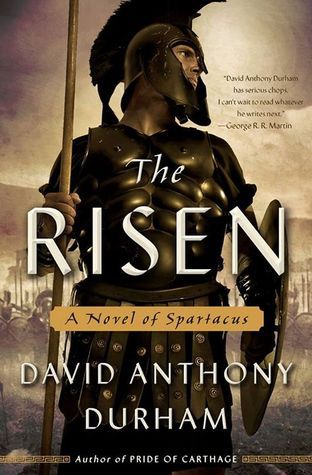A video from Claremont McKenna College this January, I believe, which I retrieved from Facebook, features William Lane Craig and Robert Barron discussing Evangelism and Christianity. It is long, and I have tried to summarize it:
Actual video, if you wish
Robert Baron, the Auxiliary Bishop of Los Angeles, and William Lane Craig met to discuss Christian Apologetics, and give there thoughts and advice for the future. What we learn from them can help atheists moving forward, but we need to be prepared.
 Bishop Robert Barron
Bishop Robert Barron
Overall the talk is interesting to understand better the characters of the two men. I was not familiar with Robert Barron, but he appeared quite open and honest about the issues that face his church (Roman Catholicism). William Lane Craig is a well known protestant, theological philosopher, who embraces thoughts from several denominations within protestant faith. He was more reserved about the concerns he clearly shared, a little less willing to admit to those failures within his own ministrations.
Evangelism:They appeared to agree on some of the problems facing evangelical activities. ‘Scientism’, as they describe it, is the idea that science can be responsible for understanding and analysing all knowledge, and they imply there are sources of knowledge other than science. Barron abhors this reductionism, but the source of other knowledge, apart from logical analysis and thought, is left ethereal, mist like, and unstated. He decried the culture of self-invention, arguing that one does not have that option, almost certainly an homage to anti-trans considerations, perhaps even the pernicious religious freedom concept. To Barron, one of the major problems is the shrinking of the size of believers, now approaching European standards. He thinks about 10% are Roman Catholic and that this number is disheartening. There is a problem with the ‘nones’ which among young people has increased to 50%. For every one that joins the church, six leave.
 William Lane Craig
William Lane Craig
Craig is more strategic in his responses, trying to cobble together plans to equip Christians with mechanisms to defend the faith. Perhaps it is my point of view that speaks to me here, but I got the impression this was disingenuous, that the truth of it all was not the issue, that the argument was unimportant as long as you win. As he said, laughing, sometimes you just have to list the arguments, you don’t even have to explain them. It reminded me of the foundations of moral evolution that Jonathan Haidt suggests, that the one Darwinian pressure in moral development is seeking ‘reputation’ rather than ‘truth’.
Craig advises to make sure you are a Christian (don’t deviate from the dogma, I suppose), memorize a gospel presentation and invite the non-believer to make a commitment, and memorize arguments for God’s existence. They both agreed, like players coming late to a game, that they needed arguments, that an appeal to the mind was very powerful, showing again that education and science, and maybe social media, is very important.
Both agreed that the culture is increasingly hostile to religion, and WLC suggested plans to pursue: universities to capture teachers, lawyers, and judges; the entertainment industry which holds such sway; and attempts to reform the judiciary, to bring legal decisions more in line with religious doctrine.
Science and FaithThey both agreed that scientism (a hostile word, invented by the religious to be derisive…we think they mean science…we certainly do) is winning. They are conceding to Darwin (at least WLC was), claiming that Genesis should not be taken literally anymore. WLC whined a bit about the trend that if things are not proven by science they are meaningless, although he claimed philosophers have debunked this modernistic thought (he didn’t say where or who, except Alvin Platinga), and claimed that the verification principle has been abandoned (though scientists appear not to understand that point). He liked to use the word ‘self-refuting’ which I have seen on his website, but does not explain (Emperor’s New Clothes type of word; if you don’t know what it means, you shouldn’t ask). They seem to understand that the ‘God of the Gaps’ is a problem because the ‘Gap’ is shrinking due to science, and with it the arguments in favor of religion. This is a curious issue that we accuse them for, and they accuse us for?
Barron argued that science comes from God, so when properly interpreted science should not be a problem. Both tend to forget the dangers of not being some kind of religion until a few years ago, so that many scientists were ‘Christian on paper’, as such designation was hardly important to them. Barron argued that Faith is supra-rational, while science is just rational, so the religious use both. It really sounds as if they are conceding to science, and, in a sort of Hail-Marry (pun intended) simply do a long bomb pass by now claiming that science is due to God, so there cannot be a conflict.
Barron then said Christians need to hang on to the ‘soul’, feeling that this is their last stand. He claims that there is a longing for something, and secularism is not attending to the ‘hungry heart’ (He has a point. Even Humanists complain that they miss the one thing churches were good at, charity).
Craig summarized an approach to the future with ‘dare to live differently’ accepting the minority position, I suppose, and that Christians should be worried, that if they are comfortable, they are wrong. Then, invoking a spine-chilling manipulation, he basically advised parents to brainwash (my word, not his) their children (get them early), especially by the fathers! He repeated this bit about fathers, leaving a sense of ‘mothers should take a backseat.’
In an amusing moment they seemed to thank Christopher Hitchens for bringing these issues to the forefront of people’s minds. But, of course, Hitchens is dead, and thus an easy target to applaud!
One worrisome point: they both think the secular attack on religion will bring Catholics and Protestants together.
What Does This Suggest to AtheismAdvertisements Share this:
- More





